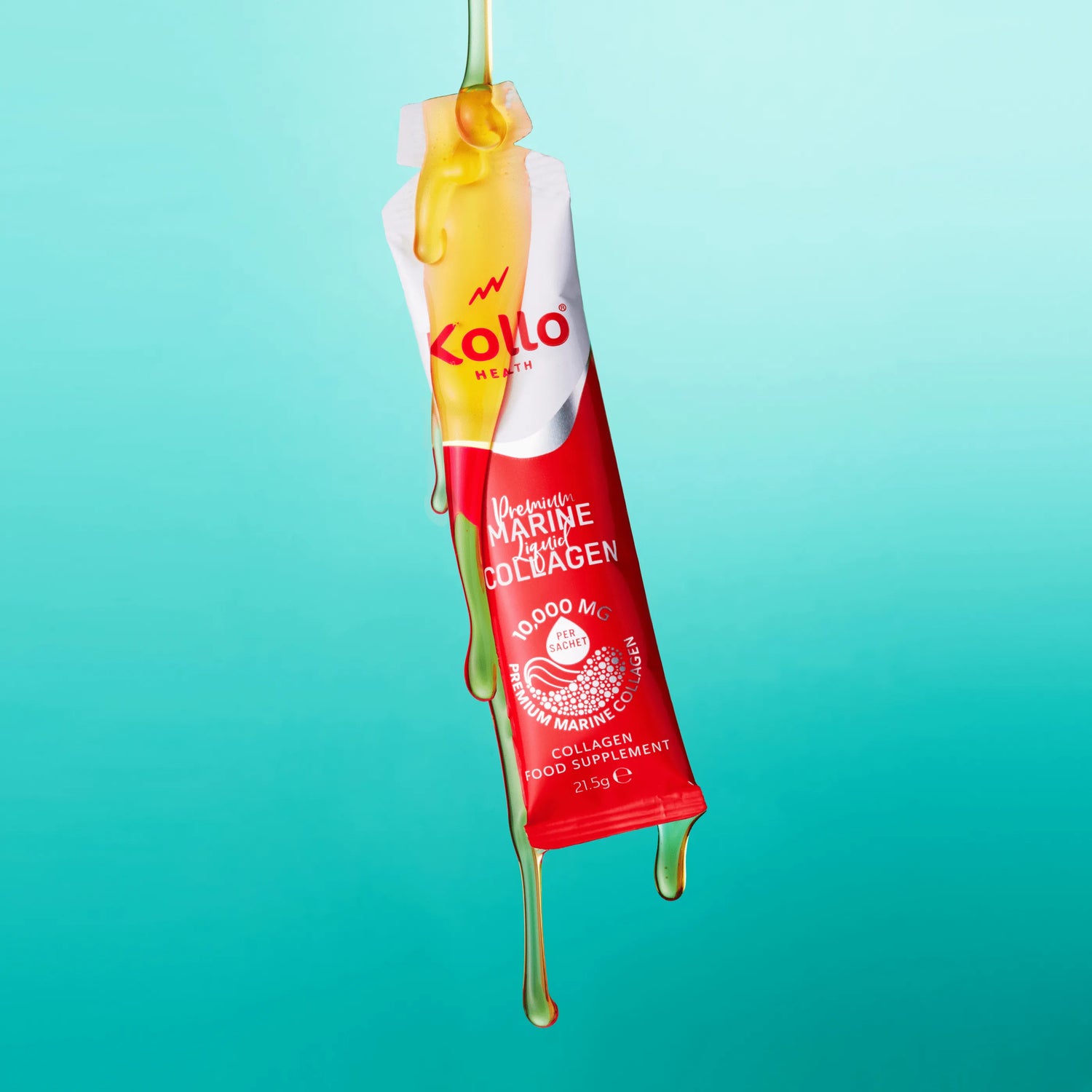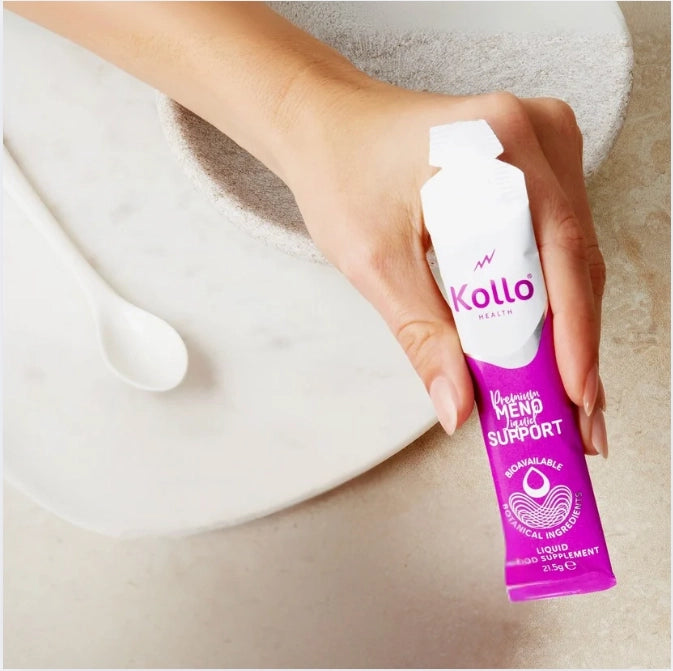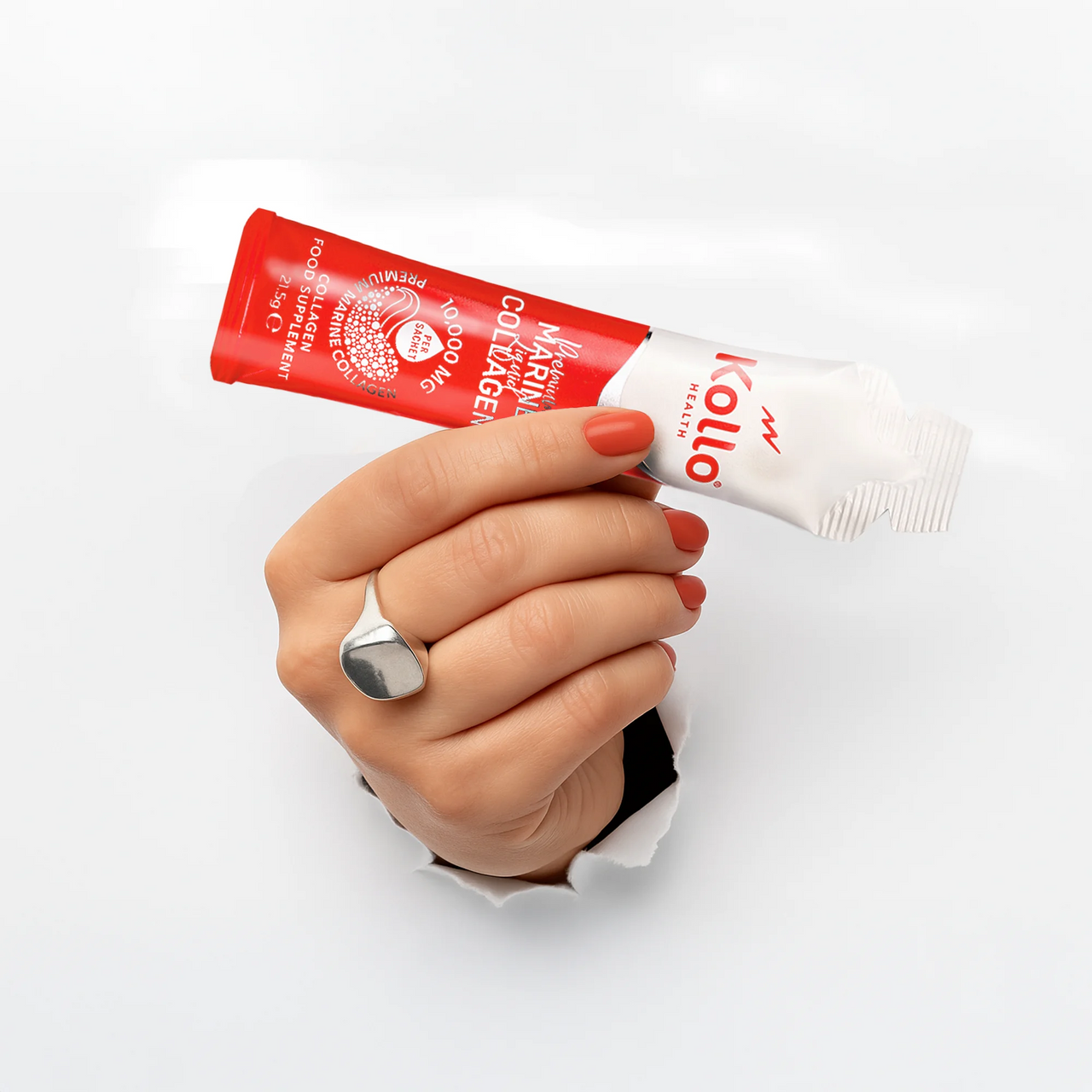Does liquid marine collagen work?
Collagen drinks are all over social media at the moment, promising glowing skin just by sipping a wonder shot of anti-ageing juice. From Pinterest to Instagram, photographs of devotees with plump and line-free skin extol the virtues of liquid marine collagen.
As one of the latest tools in the beauty industry's armoury, collagen drinks may seem too good to be true. In the ongoing search for new and effective ways to keep looking youthful, people are asking, "Does liquid marine collagen work?"
While the idea of taking a simple drink each day sounds wonderful, will it really improve our skin - or is it only a fad? If there's evidence that it works, how much liquid marine collagen will I need to notice the difference?
Based on expert opinion, we're going to discuss how much solid science is behind collagen drinks and find out if they're worth adding to your diet. Can a drink truly restore your glow and banish wrinkles? Read on to find out.
What is liquid marine collagen?
Liquid collagen is an edible supplement containing collagen proteins in a liquid, often purified water. Collagen supplements can benefit the health of the skin, hair, nails and joints. According to scientific research , collagen also gives structure to tissues in:
-
Bones
-
Tendons
-
Ligaments
-
Teeth
-
Organs
-
Muscles
-
Blood vessels
Collagen makes up 33% of our body’s total protein mass. Marine collagen comes from fish. And, like other sources of collagen, it may help delay signs of ageing, such as wrinkles and joint issues. Marine collagen provides an alternative for people who don't like using other forms of collagen from animal products.
Many people consider marine collagen to be a more sustainable alternative to other forms. This is because it originates from the unused raw materials not needed by the fishing industry for food products. The materials can then go into skin care products rather than going to waste. Marine collagen provides a more economic choice for cosmetics companies.
Scientists have found 28 different collagen types in the human body. The most common is Type I, which makes up more than 90% of the collagen in our body. Collagen is what gives our skin its elasticity and strength.
How can you take collagen?
While many cosmetics companies make collagen creams, a lot of people choose to take it as a dietary supplement. Drinking liquid marine collagen is one way of doing this. Supplements such as this contain collagen protein broken down into small blocks via hydrolysis.
The body can absorb these smaller blocks more easily. While many of these supplements use purified water for the liquid element, some also use other liquids, such as juices. You can take the supplements as individual shots, in smoothies or mixed with water.
It also comes in powder or tablet forms, but the latest trend is to drink liquid marine collagen. Some studies suggest taking liquid collagen with other supplements. Recommendations include tretinoin, retinol and Vitamin C to provide greater benefits.
If you're concerned about taking any kind of health supplements, it may be a good idea to talk to your GP first. This would allow you to discuss what you're planning to consume and the potential effects.
Why do we need collagen supplements?
Collagen's role in the body is very important, as it is one of the main building blocks for skin, hair, bones, muscles, ligaments and tendons.
Collagen prevents our skin from sagging and gives people a plump, youthful look, according to dermatologists. Our body makes collagen naturally, but the production decreases the older we get.
We start to lose collagen as young as in our mid-20s. Later in life, women lose up to 30% of their natural collagen production capabilities during the first five years of menopause. This is why many cosmetics and health supplement companies use collagen. It can aid people's anti-ageing beauty regime.
Does marine collagen taste fishy?
Marine collagen doesn't have a fishy smell or taste, despite originating from fish. This is because the processing of the product removes all the fish oils. When you take it in powder form, you can add it to tea or coffee without affecting the taste of your drink.
Similarly, you can drink liquid marine collagen without experiencing any fishy taste at all. Some devotees of marine collagen say they often weed out inferior brands by checking if it has even a slight odour. It shouldn't have any actual smell or taste at all.
How does liquid marine collagen work?
Collagen drinks start working around one hour after ingestion, according to some researchers. Your body digests the collagen peptides from the drinks into smaller molecules, which it absorbs via the gut. They will be in your bloodstream less than one hour after ingestion.
Research has shown that absorbed peptides can not only reach the skin. They may also be retained in our body's tissues for up to two weeks.
Many collagen drinks contain hydrolysed collagen, with that broken down protein structure. This makes it easier to absorb the amino acids into the bloodstream. Hence, collagen peptides are more bioavailable than complete collagen molecules, according to dermatologists.
Are there any clinical studies?
There is some hard evidence in support of the collagen beauty shots. Various laboratory-based studies have demonstrated the potential for collagen peptides in supplements and drinks to improve skin hydration.
This can reduce wrinkles by strengthening our own body's collagen network. An independent study reached its conlusion in 2019. It showed collagen supplements may be helpful for improving skin elasticity and the density of dermal collagen.
The clinical studies used between 2.5g and 10g of liquid collagen per day. Reports of test outcomes came at various times. Often, they took between four weeks and eight weeks, although some continued after this time period.
In 2020, the reputable National Library of Medicine published a review. It stated that collagen supplementation may slow the formation of wrinkles and lines. It might also:
-
Improve our skin’s ability to maintain and absorb moisture
-
Enhance the skin's elasticity and texture
-
Encourage skin cell rejuvenation and improve skin density
Research teams in England and Italy jointly carried out clinical trials in 2018. Participants drank a liquid marine collagen supplement daily for 90 days. They experienced a general improvement in their skin elasticity, structure and hydration. During the same trial, the participants also reported a 43% reduction in joint pain and 39% improvement in joint mobility.
In a clinical study in 2017, female participants took 2.5g of bioactive collagen peptides each day, in a single dose, for 24 weeks. They reported a 42% decrease in nail breakage after four weeks.
A further study in 2020 concluded that taking 2.5g of bioactive collagen peptides each day for 16 weeks increased hair growth by 31%. Participants also reported their hair was thicker.
What's the best dose of liquid marine collagen?
The results of the studies are promising. But scientists have yet to ascertain the best dose of liquid collagen for consumers to experience optimum results. An ideal timeframe is also yet to be established. Outside the laboratory setting, the research is quite sparse, as liquid collagen is such a new treatment.
To make any meaningful change to our skin’s structure, a fairly significant amount of liquid collagen must make its way to the skin. It follows that when you consume a collagen drink, it's best to opt for a hydrolysed, high-grade version. This will offer the better chance of making it through our body's digestive processes to enter the bloodstream.
Does Vitamin C work with liquid collagen?
Scientists say collagen isn't the only thing that improves the texture and appearance of our skin. Vitamin C is also required for natural collagen production. For the skin, it is an antioxidant, anti-inflammatory agent and skin-brightening agent all rolled into one.
Many dermatologists recommend ingesting products infused with Vitamin C. Take this in addition to liquid marine collagen for a double skin boost. It pays to research Vitamin C skincare products. This is because the formulas on the market can vary significantly in terms of concentration and potency.
The recommendation is to use Vitamin C in skincare in a concentration of up to 20%, but don't go any higher than this. Combine a Vitamin C supplement with a liquid marine collagen supplement. This will give the best chance of improving your body's collagen production and brightening your skin.
While liquid marine collagen is quite new on the skincare market, the early indications are positive. However, there is one note of caution. People with fish allergies may experience an allergic reaction to these supplements.
This is why it's always best to consult your GP if you have any doubts before consuming any new product orally.
Sources:
https://www.medicalnewstoday.com/articles/liquid-collagen
https://www.elle.com/uk/beauty/skin/a20764288/collagen-drinks-skincare/
https://www.cedars-sinai.org/blog/collagen-supplements.html
https://www.harpersbazaar.com/uk/beauty/skincare/a19701339/do-collagen-drinks-work/







